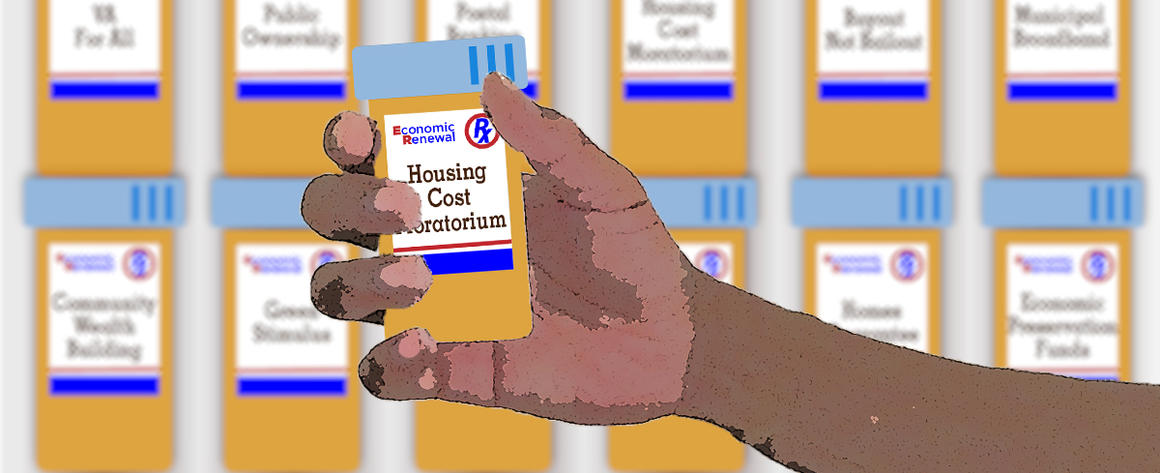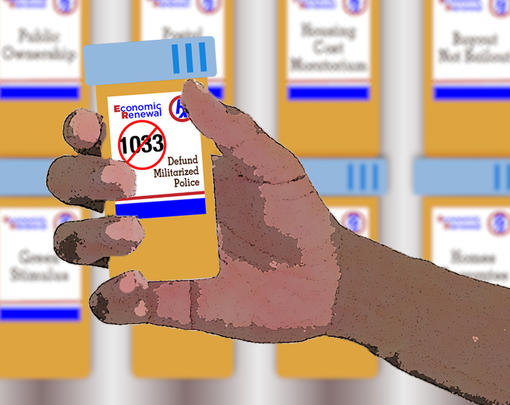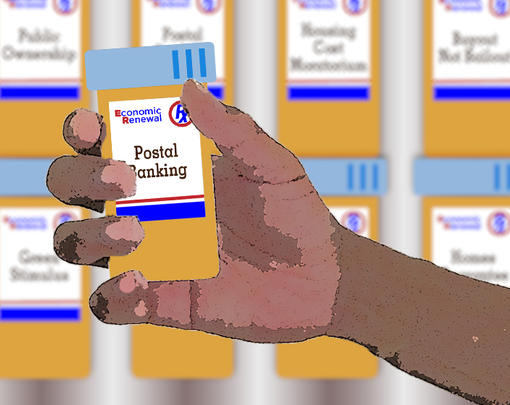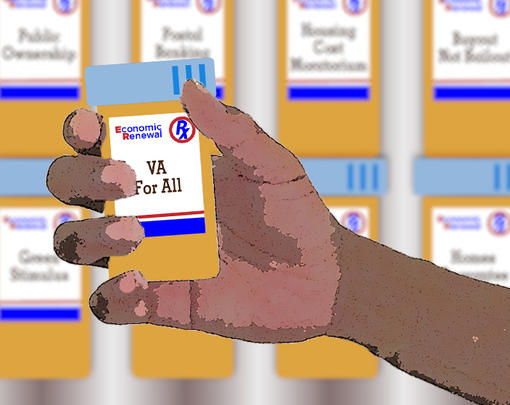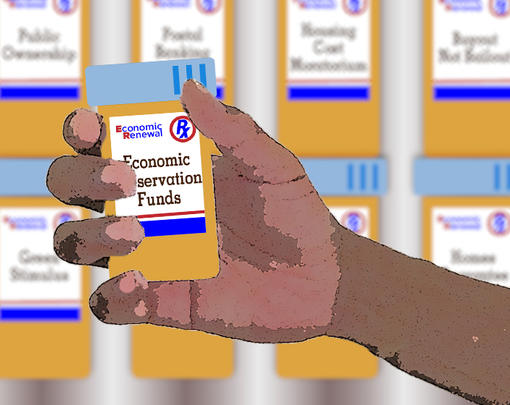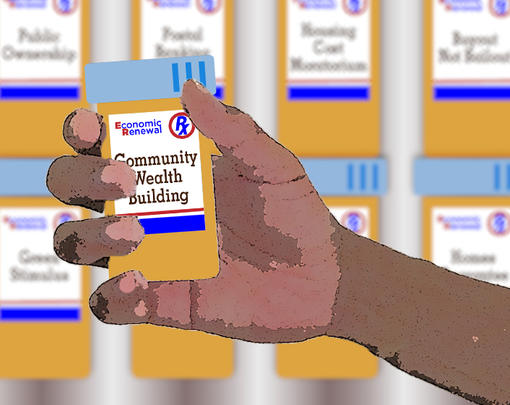The housing market is perhaps the greatest single example of the inability of capitalism to address an unprofitable social need. So we need to put a general pause on the housing market and then build a system that supplies housing to meet human needs.
Start with America’s estimated more than half-million unhoused people. Most are in concentrated shelters or encampments where COVID-19 is rapidly spreading. We have enough vacant homes and hotel rooms to house that population several times over. Those vacancies should be requisitioned by the government—at whatever level—for the unhoused to live in without charge for the duration of the crisis. After the crisis, they should be allowed to remain permanently, paying no more than 25% of their income and offered supportive services as needed. If the owner of a hotel or vacant home no longer wants to keep a building rented to formerly unhoused people, the government should buy the hotel at a reduced price with the goal of filling it with permanent tenants.
Mortgage holders and tenants are also facing a crisis. Many are falling through the cracks in our unemployment insurance system due to exclusionary rules or bureaucracy, and the one-time relief payments—for those who received them—have barely made a dent. Some, like the undocumented, are unlikely to ever be helped. The eviction moratoriums declared for such people as federally subsidized housing tenants will still leave many with huge rent arrears after the crisis, merely kicking the can down the road.
Tenants and mortgage holders—both residential and commercial—should have their payments canceled until the end of the crisis. Landlords with mortgages will have their payments canceled too, offsetting the cost. Though landlords have accepted financial risk by investing in property, a hardship fund should be created to help small property owners who face a serious loss of income they cannot afford as a result of the missed payments. This will, by design, shift much of the burden of stabilizing every American resident in their homes onto large real estate investors and banks. These institutions have enough influence and power to advocate for themselves and are more capable of accessing assistance from the Federal Reserve that is less contingent on gridlocked political institutions.
We can then plan our housing supply to serve human needs, rather than the market’s destructive pursuit of corporate profits, and make it permanently affordable once the crisis is over through a universal rent control law.

